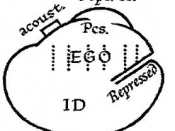When looking at the psychodynamic theory you will notice Erik Erikson's four stage theory which includes adolescence to adulthood, early adulthood, middle adulthood, and lastly late adulthood. Sigmund Freud's psychodynamic theory is broken down into id, ego and super-ego. Id is what drives hunger, sex and aggression. Id is our pleasure principle. Ego is rational, known as the reality principle. Super-ego is our conscience and what helps us to find what is right and wrong.
The behaviorist perspective state that all development results from environmental influences. John Watson and B.F. Skinner felt that people learn more by observing behavior from outside stimuli. These are broken down into classical conditioning, operant conditioning, and social cognitive learning theory. Classical conditioning occurs when a person learns by observing the behavior and stimuli in the environment around them. Operant conditioning is a phase in which children lean that positive behavior results in positive rewards.
Where as negative behavior results in punishment, finally. The social cognitive learning theory is learned by imitation. Bandura believes that this would consist of observing a model or another person.
Swiss psychologist Jean Piaget believed in the cognitive perspective this focuses on how people observe and understand the world around them. Piaget believed that assimilation and accommodation are two basic principles in the growth of children's understanding. Assimilation is the process in which appropriate stages of cognitive development and the way a person thinks. Where as accommodation is referred to as "changes in the existing ways a person thinks in response with a new stimuli or events." The information processing approach is the way an individual takes in, uses, and stores information. Much like how a computer works.
Abraham Maslow and Carl Rodgers believed that people have natural capacity to control behavior. The humanistic perspective is how people control...


